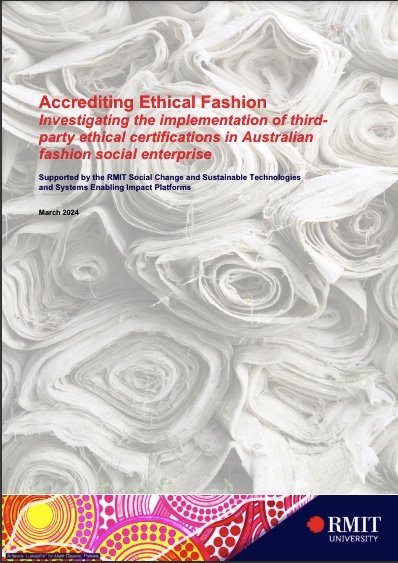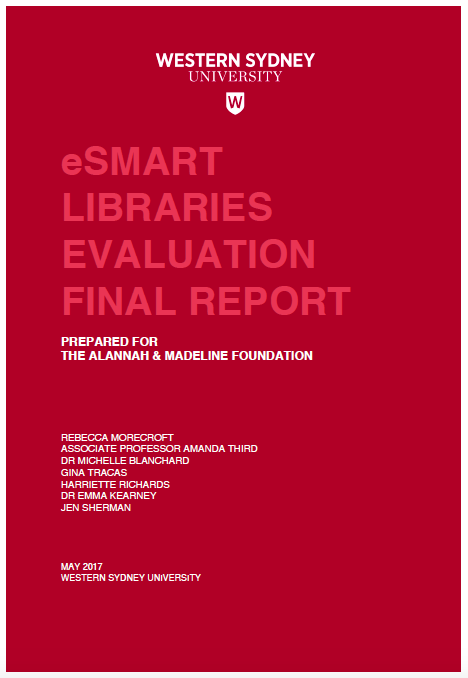Accrediting Ethical Fashion
Richards, H., McQuilten, G. & Hewitt, J. 2024.
In response to widespread concern over issues of sustainability and unethical practices, many fashion businesses are seeking out accreditation systems in a bid to mitigate consumer mistrust and communicate different ethical and sustainable aspects of their business models. Fashion social enterprises comprise a small but important section of the Australian fashion industry and as values- and mission-focused enterprises, they have a significantly higher incentive to validate claims regarding ethical or sustainable credentials. Within a landscape that includes 14 key third-party accreditation systems, Australian fashion social enterprises are faced with a complex task of navigating which accreditation systems are the most suitable for their business operations.
Our report draws on the insights gained from a series of roundtable focus groups and in-depth interviews with academics and representatives from government agencies (GAs), accreditation organisations (AOs) and fashion social enterprises (FSEs).
Our research identified six common issues regarding the implementation of ethical accreditation systems for fashion social enterprise: Cost of accreditation; Value of accreditation; Layering of accreditation; Risks of using accreditation; Risks of non-accreditation; and Expectation of ethical ‘perfection’. Together, the analysis of these issues provides a comprehensive picture of the challenges involved in the accreditation process and informs our recommendations of how the implementation of third-party accreditations can be better supported.
Morecroft, R., Third, A., Blanchard, M., Tracas, G., Sherman, J., Richards, H. & Kearney, E., 2017
This report prepared for The Alannah & Madeline Foundation, brings together the two waves of findings of the eSmart Libraries evaluation, undertaken between May 2014 and May 2017 by the Young and Well Cooperative Research Centre (Young and Well CRC) and Western Sydney University. The evaluation engaged over 1000 library managers, staff, users and industry representatives, across 15 library services in surveys, interviews and focus groups.
Findings highlighted the excellent progress the eSmart Libraries initiative is making in supporting library services to enhance the digital literacy and online safety of staff, users and the broader community. The eSmart Libraries initiative was found to support participating library services to better respond to and develop library users’ digital literacy and cybersafety needs. This was achieved through building management and staff confidence, introducing or improving internet access policy and procedures, delivering training and support to library users, and engaging more broadly in the community.

